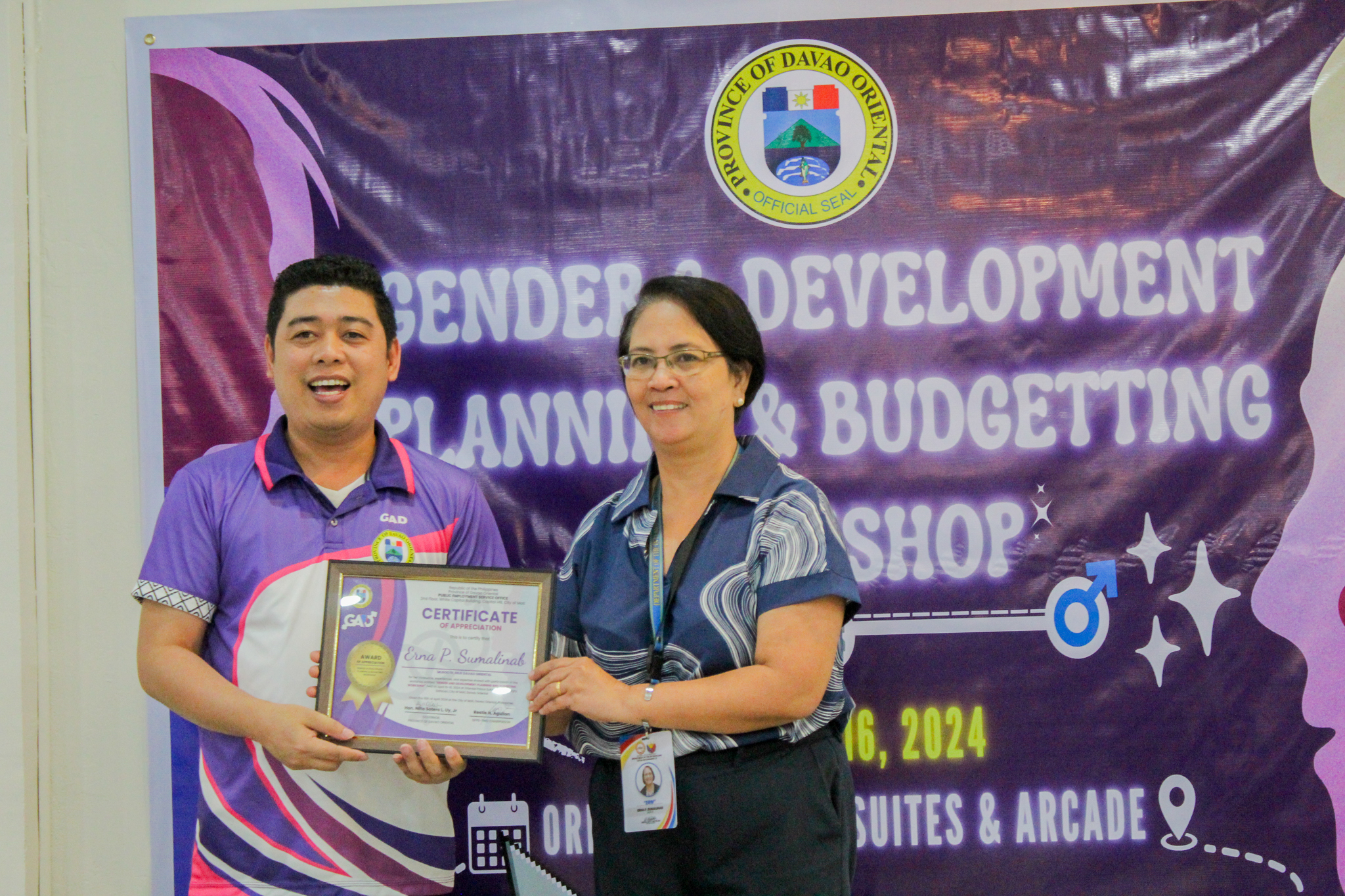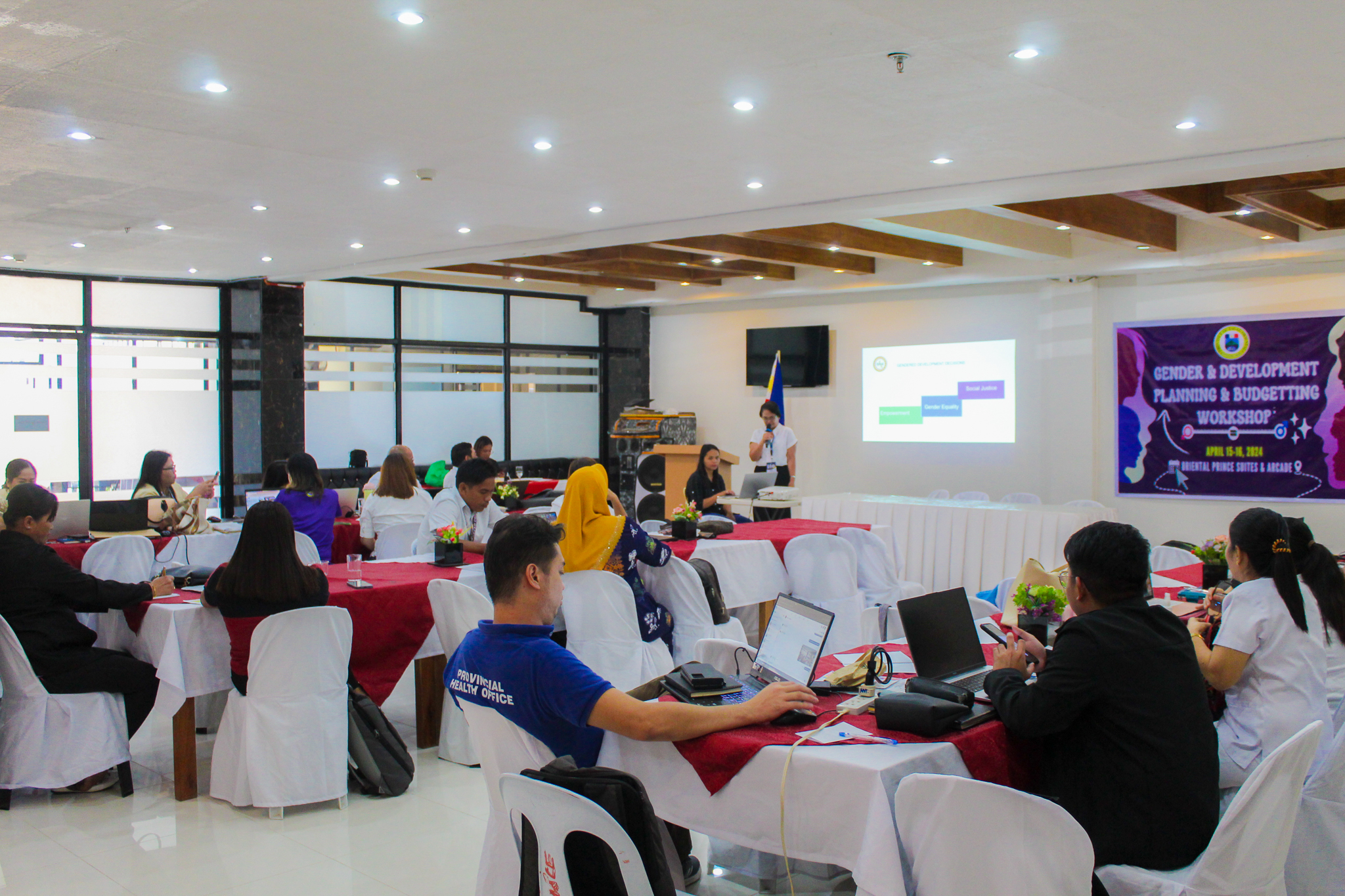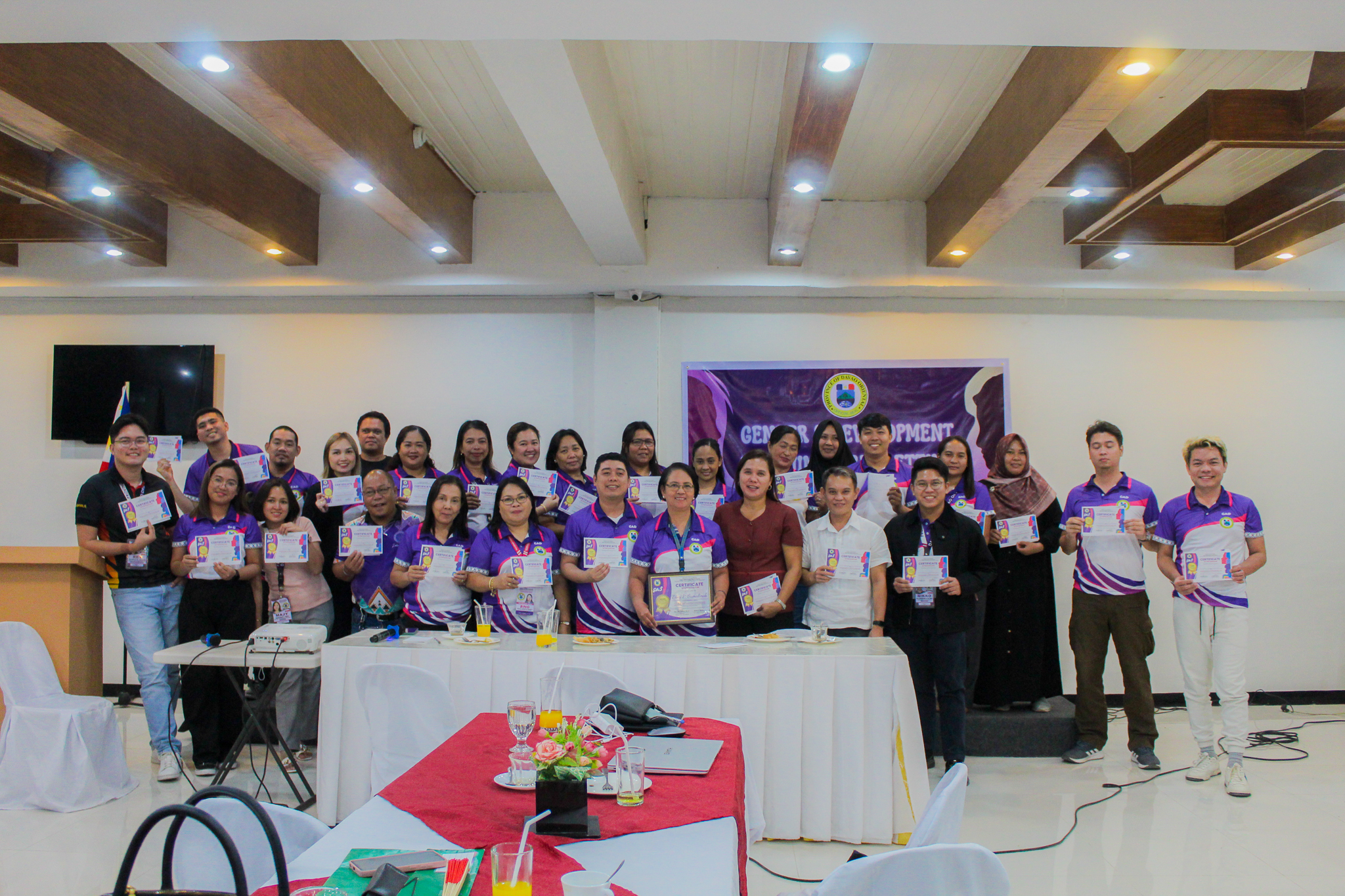In a significant move towards addressing gender disparities and promoting inclusive governance, various government offices participated in a two-day intensive workshop on Gender and Development (GAD) Planning and Budgeting, organized by the Provincial Government of Davao Oriental. Led by Governor Niño Sotero L. Uy, Jr., and facilitated by the GAD Focal Point System-Technical Working Group Chairperson Restie N. Aguilon, the workshop took place on April 15-16, 2024, at Oriental Prince Suites and Arcade, Dahican, City of Mati.

The workshop featured a series of lectures conducted by experts Ms. Erna P. Sumalinab, Ms. Marjorie T. Egot, and Mr. Restie N. Aguilon. Topics covered included a review of LGU GAD Circulars, Understanding GAD’s basic concepts, policies, and mandates, a provincial GAD audit, guidance on GAD responsive project proposals, and a write-shop on formulating GAD plans and budgets. The aim was to enhance participants’ knowledge and skills in GAD planning and budgeting.
Through interactive sessions, GAD focal persons from various offices gained a deeper understanding of gender mainstreaming strategies, gender analysis techniques, and best practices in gender-responsive budgeting. A key highlight was the presentation of each office’s GAD Plan and Budget (GPB), along with success stories of programs effectively implementing gender and development initiatives.

Aligned with the United Nation’s Sustainable Development Goal No. 5, aimed at achieving gender equality and empowering all women and girls, the Philippine Government has adopted various laws and GAD mandates, including RA 9710 or the Magna Carta of Women. This legislation seeks to eliminate discrimination by recognizing, protecting, fulfilling, and promoting the rights of Filipino women, particularly those from marginalized sectors. The Provincial Government of Davao Oriental’s commitment and initiatives mark significant steps towards gender equality and development in the province, leading to tangible changes in policies, programs, and budgets prioritizing gender equality and women’s empowerment in Davao Oriental. By Nelton Abing



